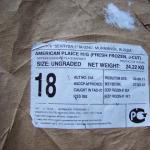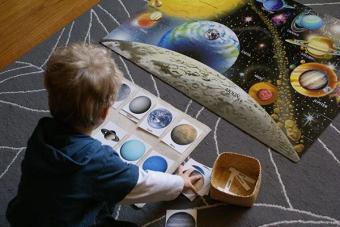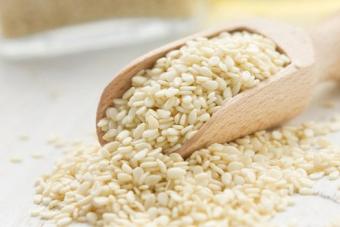Manufacturers of many chemical cleaning solutions add ingredients that adversely affect human health to their kitchen utensils. Cleaning products made at home using ingredients used in the home will be an effective and safe alternative to expensive commercial chemicals.
Household gels, pastes and soufflés prepared at home, despite their external simplicity, have a number of advantages. These include:
- Ease of manufacture. It takes only a fraction of time and care to create the appropriate solution; professional training is not needed.
- Profitability. All the components that make up one or another manufactured product can be bought at a low price, so the cost of ready-made mixtures is insignificant.
- Safety. A reasonable and rational combination of the appropriate elements guarantees a positive effect on a person: there are no dangerous additives in the composition of home remedies.
- Efficiency. If you choose the right cleaning solution, it will contribute to high-quality cleaning, and in some cases, giving a pleasant smell.
The simplest substitutes
Detergents purchased in stores can be replaced with household substances. The table discusses certain properties of the most well-known components designed to clean kitchen appliances from various types of contaminants:
| Components | Special qualities |
| Vinegar | It is mainly used for cleaning glassware: plates, vases, wine glasses, glasses and glasses. Ideally copes with moldy elements and harmful bacteria, disinfecting the surface. But vinegar does not do well with fat. |
| Borax soap | This type of soap removes grease stains and various stains. When using the product, hard water gradually begins to soften, which has a positive effect on the surface of the skin of the hands. |
| Lemon juice | If the hostess needs to whiten porcelain or ceramics, lemon juice will serve as a faithful assistant. Cleanses citrus and glass utensils to restore their original shine |
| coarse salt | Burnt areas are well eliminated with salt. But when using it, you need to be careful: large particles can scratch glass or enamel |
| laundry soda | This type of baking soda is a stronger alkali that cleans sooty pots and pans. Since the substance is quite caustic, it is worth contacting it using gloves. |
| mustard powder | This tool is recognized as one of the most effective among others due to the ability to absorb various fats. Cleaning kitchen utensils with this substance will significantly reduce the cost of the amount of water used: one bowl of clean, cool water is enough to rinse washed dishes. The powder can be replaced with ordinary mustard |
| wood ash | An ancient but effective method is used for pollution of any nature: at the end of the process, an excellent result is observed. |
| Essential oil of lavender or tea tree | You can simply add essential oils to the water, which have a detrimental effect on mold. The liquids in question not only disinfect the dishes, but also give it a pleasant aroma. If there are no appropriate substances at home, you can purchase juniper or citrus oil |
| Laundry soap | Despite the external nondescript appearance, the soap perfectly copes with any pollution. On the washed dishes there will be no trace of food particles, and the smell will not make itself felt |
| Baking soda | Soda is recommended to wash dishes that have not been cleaned for a long time. The drug disinfects products and eliminates unpleasant odors without adversely affecting the skin of the hands. Also, baking soda is great at fighting smoky areas of metal cutlery. |
| pumpkin leaves | Another ancient method of cleaning involves the use of pumpkin leaves, which should initially be slightly kneaded and used later as a dish sponge. The hostesses who used this method note a good result, expressed in the elimination of contaminants from the surface of kitchen utensils and the appearance of shine. |
| bamboo napkin | Napkins are high-quality, but expensive substitutes for natural remedies. They are able to clean food particles without any additional preparations. But bamboo elements must be carefully monitored (washed and dried in time) - so they will last for quite a long time |
The remaining remnants can serve as the basis for the manufacture of a new bar of soap. Collect the leftovers in a saucepan and add some water to it. Then you need to put the container on the stove and heat the remnants until they are completely dissolved. The resulting liquid must be poured into molds and cool.
Unique Cleaning Recipes
In addition to simple substitutes for store-bought cleaning products, you can make gels with a few ingredients using fairly simple recipes.
Universal Paste
This tool will serve well when cleaning dishes made from almost any material. The big plus of the paste is the complete absence of any dyes, surfactants and harmful additives. In addition, it is easy to make it at home:
First you need to grind the soap on a grater and put the chips in a saucepan, add about 2 cups filled with warm water, and use a mixer to bring the mixture to a homogeneous state. Continuing to beat the mass, it is necessary to pour in 2 more glasses of water and gradually introduce soda into it. The paste is transferred to a container with an easily twisted lid and used further for its intended purpose.

lemon gel
The use of citrus fruits in the manufacture of dishwashing detergents is no longer considered a curiosity: the special properties of exotic bright fruits have been appreciated by people involved in the household. To make the gel, you do not need special skills, you just need to follow simple instructions:
It is necessary to grind the laundry soap according to the first recipe and pour it with water. After the mass acquires a liquid homogeneous consistency, it is necessary to combine lemon juice, alcohol (or vodka) and glycerin with it, continuing to stir the liquid regularly. After that, the gel will be ready. It is necessary to fill any plastic clean bottle with gel.

Home antiseptic
As you know, on the surface of dirty dishes there are not only food microparticles, but also bacteria invisible to the human eye. You can get rid of them with this method:
All components must be carefully mixed and filled with a spray bottle. To clean kitchen utensils, it is worth spraying the substance on contaminated areas and scrub them with a sponge.

Soap and soda soufflé
In addition to disinfecting elements, natural flavors can be added to the cleaning agent, which will greatly facilitate the process of washing dishes and make it a little more pleasant:
It is necessary to beat the soap shavings with a blender in boiling water until it dissolves (ideally, foam should form). Then gradually add drops with fragrant oil and soda to the liquid solution. It is necessary to continue to intensively mix the product until it acquires the appearance of a light airy soufflé. In a suitable storage jar, the mixture will gradually thicken - this is normal. Thus, you can prepare another component that will not have a negative effect on the skin of the hands and on health in general.

Disinfectant paste
The basis of this paste is also a soap component, but the recipe mentions a new substance, when working with which it is necessary to monitor good air circulation in the room:
When the already familiar soap base is ready and slightly cooled, you need to add powder and soda. At the final stage, you need to pour in the ammonia and cover the mixture with a lid for 3 hours. After the stated time has elapsed, the product can be used.

Whitening gel
Sometimes cleaning of dishes is required in conjunction with bleaching of its surface, in such a case, the following recipe can be recommended:
The soap base is made, as usual, from shavings and a small amount of warm water. After that, you need to pour the mixture into a saucepan filled with cold water, bring to a boil and immediately remove from heat. Add soda and a small amount of drops of any essential oils (you can combine the most preferred). Place the solution in an airtight container of the required size.
Rules for removing contaminants from various coatings
Kitchen utensils are made by manufacturers from different materials: this should be taken into account when removing various contaminants from the surface of the dishes. Here are some simple but important tips:
| Utensil material | Cleansing ingredients |
| Cupronickel (copper + nickel) or silver | Ammonia in a small amount, diluted with cold water |
| Stainless steel | Starch water left after boiling potatoes in their skins |
| Cast iron | Cleaning with coarse salt and a clean paper towel |
| Aluminum | Boiling apple peel inside a dish |
| Nickel | The combination of salt and vinegar in equal proportions |
| Glass | Rinse first with salted water, then clean |
| Porcelain | Get rid of cocoa, tea and coffee stains instantly with cream of tartar, lemon juice and baking soda |
| Gold | Rubbing with fresh onion juice. After 1.5-2 hours, it is supposed to be rinsed with water and thoroughly dried with a clean towel. |
| Ceramics | Hot water with soda |
| Iron | Cleaning with coarse salt or ash |
| Silicone | Baking soda is applied to a soft sponge, which can be used to clean certain areas. Hard sponges will only harm the integrity of the accessories. |
| Wood | Washing with hot soapy water, followed by rinsing and drying (the final step is mandatory, as it ensures long-term use of the utensils) |
| Copper | The flannel fabric is impregnated with a solution of whey (1 cup) and salt (1 tablespoon), followed by gentle cleaning of dishes |
| Plastic | Utensils can be rid of an unpleasant smell with the help of 2 pinches of vanillin and water. The solution is clogged for 2-3 hours, then drained, and the dishes are thoroughly rinsed |
| Plastic | Laundry soap or soda will help wash the dirt. The use of products with the smallest particles that can damage the surface is highly undesirable. If there is a need to eliminate a repulsive odor, you need to put activated charcoal tablets or 2 slices of lemon in the appropriate container, cover them with a lid for 6-7 hours and rinse the container |
| birch bark | Birch bark utensils can be briefly exposed to acetic acid or hot soapy water. If you want to give a certain container its previous saturated color, you should rub the surface with a small amount of olive oil. |
| Crystal | The use of cooled potato broth. The product should be placed in the solution for a certain period of time, rinsed and wiped dry |
| Nickel | Removing grease and scale with a cloth moistened with ammonia, rinsing with boiled water, cleaning with chalk or tooth powder, rinsing again with plain water |
| Clay | Cleaning with wood ash or sand. Deep cleaning involves filling a container with cold water and a small amount of white vinegar and placing the dishes in the oven. The temperature is then gradually increased to the boiling point of the solution. After 20-25 minutes, the product is removed from the oven, cooled and washed thoroughly. |
| Enamel | A few drops of acetic acid, 7-8 tablespoons of salt and 1 liter of water are mixed. The dishes are filled with a solution and boiled over low heat. Then comes rinsing |
If there are several balls of woolen threads at home, you can try to knit a few ordinary shreds from them. With their help, it will be possible to easily get rid of pollution without the use of other folk or chemical means.
Modern manufacturers offer a wide range of detergents and cleaners. They greatly facilitate the cleaning of the apartment, fill the housing with a pleasant aroma and save time. However, many of us know firsthand that these same latest inventions of the chemical industry provoke a whole bunch of diseases: allergies, diseases of the respiratory system, pathologies of the digestive system, etc. Therefore, more and more often we are starting to think about using natural substances to clean up our homes. Some housewives take out old grandmother's notebooks with notes, while others on the Internet are interested in tips for making detergents on their own. Moreover, many women have already seen from their own experience the effectiveness of natural washing and cleaning solutions and mixtures.
Detergents for the kitchen
In the kitchen, we most often use dishwashing liquid. The results of the research show that in order to qualitatively wash off the detergent from the plate, it must be rinsed under running water at least 60 times. Agree, few people will spend so much time washing dishes. It is much more convenient and safer to use a natural product.
With dirty dishes, an easy-to-prepare powder will help. You just need to mix equal amounts of soda and dry mustard. The resulting mixture is applied to a damp sponge and used for its intended purpose.
For those who want to get a more effective remedy, we offer a complex recipe. So, you need the following ingredients:
- Laundry soap - 200 g;
- Mustard powder - 100 g;
- Baking soda - 200 g;
- Lemon juice - 2 tablespoons;
- Ground lemon zest or coffee grounds - 100 g;
- Borax in glycerin (sold in pharmacies) - 20-30 ml;
- Food flavoring optional;
- Water - 500 ml.
The soap is rubbed on a grater, lemon juice and borax in glycerin are added and left for 3-6 hours (you can overnight). The mixture should be viscous and slimy, but not very thick. If it is thick, add water. When lumps appear, beat the mass with a whisk. Then soda, lemon zest (coffee grounds) and flavoring are added to it, beaten again and laid out in containers. If you want to put the resulting mixture in a pump bottle, you should dilute it with water. Before use, the product must be shaken.
Housewives spend a lot of time cleaning ovens. But there is a way by which you can effectively clean this gas or electric appliance without much effort. For this purpose, the bottom of the oven is moistened with water and sprinkled with soda. Sprinkle plenty of water on top again so that the soda turns into a paste. Leave overnight. In the morning, all fat is easily removed. After that, the oven is washed with liquid soap (3 teaspoons of grated laundry soap are dissolved in hot water in advance).
Bathroom detergents
Do you want your bathroom tiles to sparkle? Use the cleaning agent prepared according to the following recipe. Grate laundry soap on a fine grater to make about 100 g of soap chips. Mix it with 200 g of chalk and 200 g of soda. Drizzle the mixture with eucalyptus essential oil (a teaspoon). Transfer the finished mass to a jar and close the lid tightly. Start using the resulting powder after 6-10 days as a regular cleaner for all surfaces in the bathroom. By the way, the same powder will effectively clean the tiles in the kitchen.
To wash mirrors and glasses, you can use another great recipe. Mix 1 tablespoon of wine vinegar, 20 g of crushed chalk and 200 ml of warm water. The resulting mass is brought to a boil, and then allowed to settle. Then the clean liquid is poured into a jar and used to clean glass and mirror surfaces.
Very popular with many experienced housewives is a glass cleaner based on water and vinegar. To prepare it, add 3 tablespoons of vinegar or lemon juice to 300 ml of water. The solution is poured into a spray bottle and the windows are washed effectively.
Washing sinks and cleaning the toilet bowl is carried out with vinegar and soda. Sprinkle surfaces with vinegar (you can use lemon juice), sprinkle with soda on top and leave for 10-15 minutes. Then rub it well with a brush and rinse with water.
Room cleaning products
Furniture polish has already firmly entered the life of many families. But most experts call its composition very dangerous for the human respiratory system. A natural home remedy will help to solve this problem: lemon juice or vinegar (50 ml), olive oil (½ teaspoon) and lemon essential oil (10 drops) are mixed in a glass container. A soft cloth is moistened in the resulting mixture and the furniture is wiped. The undoubted advantage of such a tool is its unlimited shelf life.
Often housewives are faced with the need to clean carpets. Home remedies will come to the rescue here. Add 1 tablespoon of washing powder, the same amount of soda, 70 ml of vinegar and 300 ml of hot water (not boiling water) to a spray bottle. Shake, spray the resulting solution on the carpets and clean them.5 5 out of 5 (2 votes)
Homemade dishwashing detergent, of course, does not work as quickly as household chemicals. However, it is completely safe. Chemicals clean dishes and spoons well, but they tend to remain on the surface. To completely wash them off, you must thoroughly rinse the dishes by hand under running water. Dishwashers and quick hand washing do not completely wash off the product. It accumulates on cutlery and enters the human body when eating, representing a health hazard.
Home cleansers certainly don't work as fast as household chemicals.
Folk remedies
Previously, there were no store-bought preparations, but every housewife knew homemade recipes for cleaning dishes. The cutlery was clean, the plates were white, and the pans just shone. Over the centuries, many secrets have been accumulated in the preparation of detergents that you can make with your own hands. As a rule, for their preparation, components such as:
- soda;
- mustard;
- vinegar;
- lemon;
- laundry soap;
- wood ash;
- brick crumb.
They are effective both individually and as part of general solutions and mixtures. One of the simplest and time-tested recipes is baking soda. It has been washing away dark plaque for centuries. Baking soda is great for getting rid of burnt-on food. In addition, baking soda is an all-purpose cleaner. She wash not only dishes after eating, but also various containers, as well as kitchen cabinets, hob, oven, sink.
Dirty dishes are a problem for every housewife. In order to make dishes clean and sparkling, everyone uses different chemical detergents for washing. The choice in stores is quite large, but not everyone knows that some detergents have a negative effect on the body. Detergents can be domestic production, and other countries of the world. The most popular means: Fairy, Eared Nanny, Bingo, Gala, Bio, etc.
What kind of dish detergent should be?
There are certain requirements for each product and product, so dish detergent is no exception.
It should be:
- economical;
- large volume;
- the product, getting on the sponge, should form a lush, dense foam;
- have an aroma that does not cause allergic reactions;
- consistency and pH must be within acceptable limits;
- the packaging must be undamaged, a container with a dispenser;
- The label should contain a full description of the product and instructions for use.
Attention! Detergents with damaged packaging and containers, with an unpleasant odor should not be used.
You can meet on the shelves of stores funds in the form of liquid, gel, tablets, powders. Each kind is good in its own way. The basis of each product is surface-active substances (surfactants), it is they that break down the fat that every housewife struggles with.
In water, active substances begin to act, they break down into negatively charged ions and fat is broken down. Therefore, in order for the product to dissolve fat well, it must contain a large amount of active substances.
Every housewife has a favorite detergent that attracts with price or quality. But not all dishwashing detergents can effectively cope with the task. Surfactants are dangerous substances for an adult and especially a child's body.
To get rid of them, you must thoroughly rinse the detergent from the dishes. Children's dishes are recommended to be washed without the use of chemical detergents. If cleaning is necessary, it is better to use folk remedies that can be prepared from simple ingredients.
Disadvantages of chemical dishwashing detergents
Detergents are a godsend for the hostess, but despite the relief, they only complicate everything. Most of the components that make up the detergent are poisonous. Everyone sometimes had to deal with skin problems on their hands.
But no one thought about it, but it is worth thinking about. To rinse the entire chemical composition requires a large amount of water and time. Because of this, a remedy remains on the dishes, which enters the stomach with food, where the poison settles.
Scientists have calculated that the average person drinks two glasses of detergent per year. The agent, getting into the body, helps to weaken the immune system, the work of the liver, kidneys and lungs and other important organs decreases and worsens.
To protect the body from exposure to detergents, reduce their use. It will not be possible to completely refuse, but they can be replaced with natural detergents.
How can you reduce the use of detergents?
- To dissolve grease and clean food residues, wash dishes in hot water. If the dirt is strong, only then use a detergent, but wear gloves.
- You can replace the store-bought product with regular baking soda. It removes any impurities well and is thoroughly washed off with water.
- Mustard powder can be used as a detergent. Dilute it in water, you get a porridge-like mixture. Place the bowl in a container with a lid. From mustard dishes are washed amazingly. The only drawback is that mustard stains sponges and rags.
Do not trust manufacturers. They will never say that detergents contain harmful substances that adversely affect health. Pay attention to the composition, if it includes chlorine, phosphates, phthalates and surfactants, think about it, it might be better to refuse to buy.
What do you use to make your cleaning agent?
Carefully choose a detergent for dishes to protect yourself and loved ones from the occurrence of various diseases.
But it is better to wash dishes with natural and reliable products that you can cook yourself. Mustard powder is the most popular. It perfectly washes even the most persistent dirt, removes grease, the smell of fish.
Washing dishes without the use of chemicals is better for the body.
 Advantages of washing dishes with mustard powder:
Advantages of washing dishes with mustard powder:
- Harmlessness. There are no synthetic fragrances, phosphates, chlorine and surfactants.
- Availability. You can buy mustard powder at any store.
- Saving. Dry mustard powder is cheap. To wash it off the dishes, you need a minimum amount of water, unlike detergents.
- Environmental friendliness. It is much easier to purify water from mustard than from synthetic substances.
Dishwashing liquid recipes
Consider universal and simple means for washing dishes and washing things. Let's prepare a liquid dishwashing liquid with our own hands.
Option 1
To prepare a natural effective remedy, you need the following ingredients:
- Laundry bar soap - 50 grams (can be replaced with baby soap);
- soda ash - 2 tbsp. l. (sold in the market);
- any essential oil for fragrance (choose one that does not cause an allergic reaction).
The principle of preparation is simple. Soaps must be crushed with a grater. Melt the soap chips in a water bath with the addition of 100 grams of liquid. Stir constantly so that the soap shavings dissolve faster.
Cool the liquid, then add 2 liters of water. Put the whole volume on fire and bring to a boil. Add soda ash to hot soapy water. Mix well. When the liquid cools down a little, add any essential oil to give a pleasant aroma.
After complete cooling, the liquid can be poured into a container with a dispenser, for more convenient use. Shake the liquid before use. With this gel, you can wash not only dishes, but also tiles and tiles. It can be used as a powder.
Pour 100 grams of product onto a full drum. Soap solution is ideal for hand washing, and washes stains like any powder.
Option 2
A simplified method for preparing a washing gel. Remnants that remain after using soap, pour boiling water, leave for a few days. For better dissolution of the soap, stir the liquid periodically.
You will get a concentrated soapy solution. It must be diluted with water, then add soda. Add essential oil of your favorite fragrance to the liquid.
Benefits of household cleaners:
- Minimum chemicals.
- For cooking, you can use any soap.
- The tool is economical, thanks to cheap components.
Gel-paste for washing dishes from folk remedies
Natural dish detergent with baking soda and mustard, what could be better for washing any kind of dishes. To prepare the product, you will need the following ingredients: laundry soap, water, soda, mustard powder.
Let's start preparing the means for aluminum dishes. Grate the soap on a fine grater, you need 25 grams. Pour 400 ml of boiling water over it, stir until the soap is completely dissolved. The liquid will cool down, you can add 1.5 tbsp. l. soda and 2 tbsp. l. mustard powder. Mix well. The prepared composition will harden a little.

- Mustard powder is a common remedy that not only dissolves fat well, but also removes unpleasant odors. To prepare a mustard remedy, you need to mix the powder with water in a ratio of 1: 2.
- We clean dishes with baking soda. Removes dirt and grease. The advantage of the tool is availability, low cost. Apply dry soda to the dishes, rub with a sponge, rinse with water. It does not leave streaks, streaks and washes off well.
- We clean the dishes with lemon. Lemon is a folk remedy proven over the years. Effectively cleans contaminated surfaces. To prepare a remedy with lemon juice, you will need: 0.5 cups of vinegar, 3 tbsp. l. water, 4 tbsp. l. soap shavings, 2 tbsp. l. glycerin, 3 tbsp. l. lemon juice, 1 tsp. starch. Mix all. The liquid will be concentrated with a specific smell. But despite this, it perfectly eliminates even the most persistent pollution. Lemon juice can also be used neat. It eliminates fat, persistent and unpleasant odors from fish, onions. Juice helps to rid cutlery from rust and limescale.
- We clean the dishes with vinegar essence. It can be used in concentrated or diluted form. But only when working with this substance it is necessary to wear gloves. Vinegar is a good stainless steel cleaner.
- An old but effective way is wood ash. Oddly enough, but the ash fights well with fat and at the same time does not leave any harmful trace elements. But now it is quite problematic to get ash, so this method is good in nature or in the country. The principle of use is simple. Apply the ash to a sponge and rub the contaminated area, rinse with water, the result will surprise everyone.
- Linseed or olive oil will help clean wooden utensils. To prepare the remedy you will need 100 grams of lemon juice and 1 tbsp. l. oils. Mix composition well. Wipe wooden surfaces with liquid. Wipe any remaining moisture with a dry cloth.
- You can fight fat with a soap and soda solution. We take 100 grams of soap, which must be grated. Pour it in a glass of boiling water. Mix well, add 2 tbsp. l. salt and 1 tbsp. l. soda. Mix well, strain. Add 200 grams of water to the solution. For more convenient use, it is recommended to use a container with a dispenser.
Pros and Cons of Home Cleaning Products
Positive aspects of the tool:
- Environmental friendliness. Natural and simple ingredients are used in the preparation of the products. You will know what is included in the funds. The big advantage of such preparations is the absence of a negative impact on water quality and human health.
- The agent is well and completely washed off from the dishes, therefore, the entry of components into the body is reduced to zero.
- The components are simple and accessible to everyone, and they are not as expensive as regular store-bought drugs.
Flaws:
- Do-it-yourself detergents are consumed faster than ordinary purchased household chemicals.
- You need to allocate time to prepare the remedy.
Advice! If for the first time you decide to make your own dishwashing detergent, use the simplest and most gentle products.
Store-bought cleaning products can be harmful to your skin. They are not as natural and high quality as they want to seem. So, why not make your own cleaners?
Dear readers, Design Museum invites you to consider several options for using vinegar, baking soda, lemon juice, or a combination of these substances. The result is an all-purpose kitchen cleaner.
Using Vinegar
- You probably don't know, but vinegar is great for cleaning hardwood floors. Simply mix half a cup of white vinegar with a glass of warm water, do not use on waxed floors.
- Vinegar is also the best helper in the kitchen. You can use it to clean your oven, as well as daily when you have problems with grease splatter. Use a brush or sponge to work with distilled vinegar.

3. Another interesting use of vinegar is as a cleaner for your car's rear window. Use a simple solution - a solution of vinegar and water works just fine, you can add lemon juice. Wipe the glass with crumpled newspapers.
4. We noticed that if you leave water in a glass, after a while rings and lime deposits form on the surface. It is not so easy to remove it with ordinary cleaning products, you need something stronger. Lucky for you, the vinegar does the trick, dissolving the minerals and leaving the glass perfectly clean.

5. The old way of using vinegar against mold, germs and bacteria is very popular. All you need is a spray bottle filled with vinegar. Use a tile cleaner in the kitchen and bathroom. Vinegar solution left overnight on a cutting board kills germs.
6. Use vinegar to clean brass fixtures. Just rub or soak the brass part of the candlestick in vinegar. After a while, it will sparkle clean.

7. Vinegar is also a great help when polishing furniture. Dampen a soft waste cloth with a mixture of a quarter cup of vinegar, a few drops of oil, and wipe the surface. It will remain shiny and beautiful for a long time.
8. If for any reason there is an unpleasant smell in the house, just put a bowl of vinegar in the room for a couple of hours and the smell will disappear.
9. The best solution to an ant problem is vinegar. All you need to do is spray vinegar on the ant track. The insects will disappear. Quite funny actually, but it's true.

10. Another interesting use of vinegar in the kitchen is drain cleaning with a mixture of vinegar and baking soda. Pour a cup of baking soda down the drain, followed by another shot of hot distilled vinegar, after 30 minutes, add plenty of hot water.
Best Uses for Baking Soda

- One of the most popular silver cleaners is baking soda. Simply make a paste of baking soda and water, apply the mixture to a clean rag, and rub while polishing your homemade silver.
- You can also use baking soda to clean your oven. Sprinkle baking soda on the bottom of the oven, moisten it a little with water, making it wet, leave it overnight. In the morning, you can easily clean the oven with a kitchen sponge.

3. Use baking soda as a deodorant for your kitchen cutting board. Sprinkle the board with baking soda and rinse, it will be clean and fragrant just like new.
4. Get rid of odors in the refrigerator. Place a box of baking soda on the refrigerator door to absorb any odors. The bad smell will go away.

5. Baking soda is also good for cleaning drains. Pour one cup of baking soda into the pipe and pour three cups of hot water over it.
6. You can also use it to clean the tub or tile. Mix half a cup of baking soda with liquid soap or detergent until it becomes a soufflé. Use a sponge to clean tiles or tubs.
7. Baking soda cleans the bristles of toothbrushes by soaking them in a mixture of baking soda and warm water. Leave them overnight in the solution and rinse with hot water in the morning.

8. Use baking soda to kill ants and cockroaches. Pour it under the sink and along the windows, creating a makeshift barrier. Insects eat soda and die.
9. If you have a puppy or kitten who has not mastered the art of using the toilet, you can remove the smell of the animal's urine using baking soda. Sprinkle on problem areas and leave for a few hours. Baking soda neutralizes acid odors.
10. In winter, the porch of your house will not be covered with ice if you sprinkle soda on the ice. When in contact with baking soda, the ice will melt. It will not damage the porch surfaces or shoes. Baking soda is the best substitute for rock salt.
Uses of lemons

- The easiest way to use lemons is to simply toss them down the garbage chute to keep the air clean and fresh.
- Lemon juice easily removes scratches from furniture. Simply mix equal parts lemon juice and vegetable oil, and then rub the scratches with a soft cloth.

3. Lemon juice is also a great help when polishing furniture. Mix one part lemon juice and two parts olive oil. The furniture will shine, look like new.
4. Remove limescale from bathroom and kitchen faucets with lemon peel. Rub it on the faucets, rinse and then dry with a soft cloth. This will make surfaces shiny and clean.

5. Have you started painting the walls in the house? Great, but in the end you have to remove dried paint from the surfaces of various objects. Do this by simply applying hot lemon juice.
6. If you have marble in your home, you can use lemon to remove stains from marble surfaces. Simply cut a lemon in half, dip the cut in salt, then rub the stain. But do not repeat too often, otherwise the acid may damage the marble.

7. Exceptionally gorgeous lemon-scented fireplace. You just need to throw a few slices of lemon into the fire or burn them with firewood. Enjoy a cozy evening by the fireplace without worrying about bad smells.

8. Keep bad smells out of the bin. Maybe you are used to it, but the guests will certainly not be pleased. Cut a couple of lemons in half and place them, cut side up, on a dish in the room, and the smell will disappear.
9. You can also use lemon juice to remove odors in the refrigerator. All you need to do is leave a cotton swab or sponge soaked in lemon juice in the refrigerator. Hold on for a few hours.

10. If you have copper items, an easy way to clean them is to use a halved lemon with salt, and then rinse with hot water.





